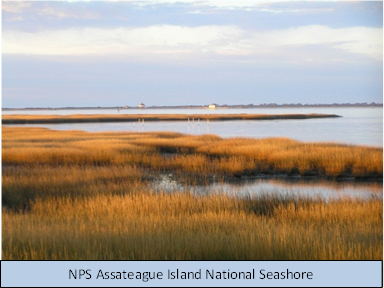
PSM students are required to complete an internship in lieu of a master’s thesis. We expect that the internship component of the PSM degree program will help students to acquire knowledge and skills in quantitative fisheries and/or resource economics, and to obtain training in project management, team work, cross-disciplinary interactions and effective communication orally and in writing. Students can complete internships at any of the state or federal agencies, or at a consulting firm approved by the PSM Program Director. Interns will be required to spend up to 3 months gaining research experience after which they will earn 3 non-thesis project credits. Alternatively, students may complete fewer hours per week over a whole semester for a total equivalence of 3 months. A minimum of 150 hours of experience during which the intern is physically present at the work site is required.
The Program Director and Program Coordinator will work collaboratively with the PSM Employer Advisory Committee to identify internship placement sites for students, based on the students’ interests. Students in the PSM program are also encouraged to seek out opportunities for internships at federal and state agencies or consulting firms. Any internship site must ultimately be approved by the Program Director.
Students will work with potential supervisors at the internship site to develop a project after which the student, in collaboration with the Program Director, assembles a committee to supervise the internship work. Following consultations with the proposed internship mentor, the intern will write a preliminary proposal describing the proposed internship project including project title, introductions, objectives and methods, along with timelines for completing specific tasks which will be sent to the PSM Program Director. The intern is required to send progress reports to the PSM Program Director on a monthly basis.
Interns are required to prepare and submit final reports on their projects at the end of their internships to the PSM Program Director. A special symposium will be organized during which students will make oral presentations of their work and share their internship experiences with fellow students and professors. In addition, interns will be required to complete a survey based on their internship experiences.
PSM students are encouraged to use their internship projects to complete a master’s thesis. If they choose to do that, however, mid-way or later into the internship program the student, with the consent of the internship advisor, must notify the PSM Program Director of his or her intention to complete a master’s thesis. Following this, a master’s thesis committee will be set up which will then determine the adequacy of the project in terms of scope and quality for a master’s thesis. If the request to complete a master’s thesis is approved, the student will be expected to continue to work on the project during the academic year following the summer internship until the master’s thesis is completed.

Examples of places where internships may be conducted are:
- State Natural Resources Management Agencies, e.g. Maryland Department of Natural Resources
- NOAA – National Marine Fisheries Service (NMFS)
- NOAA – National Ocean Service
- US Geological Survey
- US Fish and Wildlife Service
- US Department of Agriculture
- Environmental Protection Agency
- National Park Service (NPS)
- Environmental Consulting Firms.


